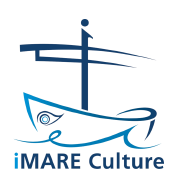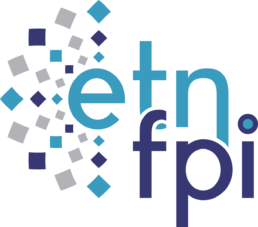HEAT
The aim of this project is to integrate immersive media technologies such as point cloud/holographic imaging, multi-sensorial media, Social VR in a multi-user, feedback-enabled communication system to provide the construction of compelling context-aware and embodied experiences for innovative hybrid XR applications. The project will provide well designed scenarios in real-world environments for enhanced XR experiences: a blended learning, a modern theatre act, a music festival and an opera show.
Holographic contents, generated in the pilots, will be rendered on various 3D displays, such as 3D light field displays. Holografika will contribute with the available 3D light field HoloVizio display infrastructure to the pilots. Will also contribute to the pilot planning, to align the pilots with technology capabilities, incl. the proper local and remote usage of 3D LF displays to iterate and modify pilots, collecting user feedback along with QoE testing performed on 3D light field displays in life-like test conditions.
3D LED Wall
We are living in the era of visual communication.
LED technologies will dominate future displays and visualization. LEDs will outperform all, currently still mainstream technologies, like LCDs, projection (DLP, LCOS, other), even OLED. LEDs, being emissive display components by nature, offer very efficient operation with low consumption, excellent contrast with real black levels, when off, relative to backlit LCDs, or projection. They offer superb brightness, vivid colors and long life-time, when compared to OLEDs.
LED walls became the sole solution in large-scale displaying. Video walls, projection systems and other visual techniques, installations cannot keep pace with the practical advantage of LED walls. LED walls are not anymore just display walls, they offer a creative platform for modular any size, any aspect, any shape, any surface displaying.
For latest fine pitch LED walls, with pixel pitches under 1 mm, they will come to the size of TV-s in the living room. The modular structure for TV sets next generation microLED technology is evolving opening the way for further size reductions.
Europe is in a leading position in the photonic industry, including LED components and advanced optical technologies. Two European SMEs join forces to rethink LED walls to create a new product category in the segment, launching glasses-free 3D Light Field LED Walls.
EVOCATION
EVOCATION will provide the first European training platform for the development of doctoral research skills in the context of scalable acquisition of object shape and material appearance, interactive visualization, advanced 3D displays and computational fabrication. The table to the right summarizes the recruitment deliverables per beneficiary. ESR positions will be advertised at start, with ESRs expected to be working by M6. Training will be based on the novel and scaffolding combination of top-down structured training (e.g., lectures, seminars, progress reports), bottom-up fellow-organized learning (e.g., online discussion and wiki forums, self-auditing, individual coaching) and experiential learning (e.g., experiment design, real-world case studies, workshop organization).
We pursue five major training objectives:
- Training-through-research and methodical learning based on specific research activities
- Local training, combining structured PhD programs with individual coaching, in core research competences and skills within both academic and industrial environments
- Network-wide training, implemented through training events as well as remote tutoring, focusing on the thematic areas, as well as complementary skills focusing on Open science concepts, entrepreneurship, and further transferable skills
- Inter-sectorial and transnational mobility via secondments and shorter visits to beneficiaries and partners
- Individualized development of professional and personal skills through per-person planning, monitoring, and feedback.
The common goal of the specific research activities and of the associated training is to prepare ESR fellows to optimally use and develop technology for high-quality 3D acquisition, and virtual and physical presentation, to be applied in a number of application domains. This is a twofold transformative process involving structured training to reach domain understanding from technical knowledge, and individual coaching to gain awareness from the mastery of technical skills.








